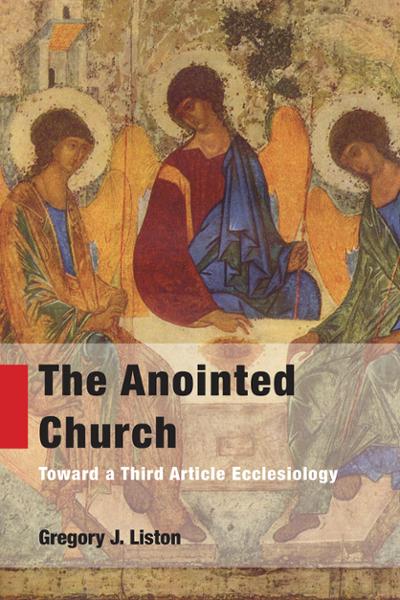The Anointed Church: Toward a Third Article Ecclesiology
The phrase Third Article Theology is used in two senses: first, to characterize a methodological approach that intentionally starts with the Spirit, and second, as the theological understanding that emerges from this approach. Over recent decades, Spirit Christology has utilized the approach of Third Article Theology to gain significant insight into the person and life of Christ.
The Anointed Church extends this work, providing the first constructive and systematic ecclesiology developed through the approach of Third Article Theology. Gregory J. Liston argues that a pneumatological lens irreducibly informs the connection between other theological doctrines and ecclesiology. Utilizing this insight, the Church is examined from the vantage points of Christology and the Trinity through such a pneumatological lens.
The constituent features of a Third Article Ecclesiology developed in this manner are compared and contrasted with critical evaluations of ecclesiological understandings developed through alternative approaches, particularly those of Barth, Zizioulas, and Volf. Arguing that the immanent identity of the Spirit is reprised on a series of expanding stages (Christologically, soteriologically, and, most pertinently here, ecclesiologically), Liston concludes that the Church can be characterized as existing in any and all relationships where, by the Spirit, the love of Christ, is offered and returned.
The Anointed Church extends this work, providing the first constructive and systematic ecclesiology developed through the approach of Third Article Theology. Gregory J. Liston argues that a pneumatological lens irreducibly informs the connection between other theological doctrines and ecclesiology. Utilizing this insight, the Church is examined from the vantage points of Christology and the Trinity through such a pneumatological lens.
The constituent features of a Third Article Ecclesiology developed in this manner are compared and contrasted with critical evaluations of ecclesiological understandings developed through alternative approaches, particularly those of Barth, Zizioulas, and Volf. Arguing that the immanent identity of the Spirit is reprised on a series of expanding stages (Christologically, soteriologically, and, most pertinently here, ecclesiologically), Liston concludes that the Church can be characterized as existing in any and all relationships where, by the Spirit, the love of Christ, is offered and returned.
- In stock, item will be discontinued when sold out
- Kindle - Nook - Google
-
Quantity discount
- # of Items Price
- 1 to 9$44.00
- 10 or more$33.00
$44.00
